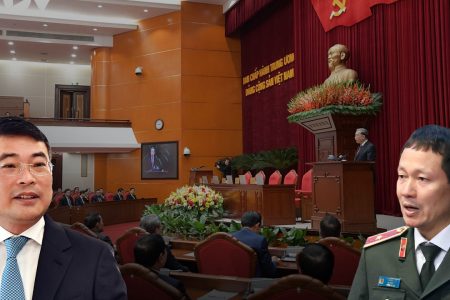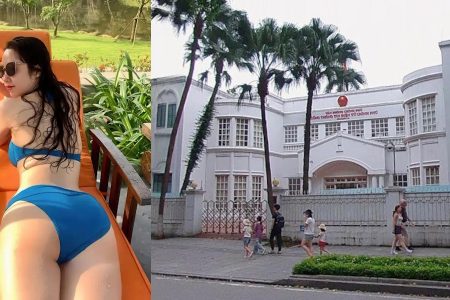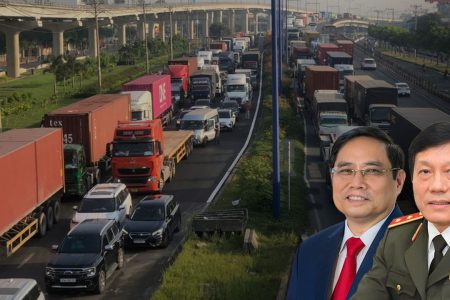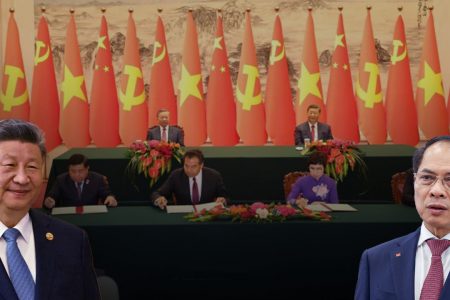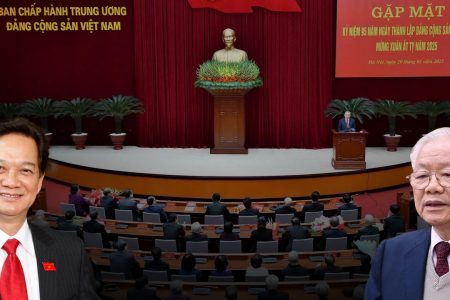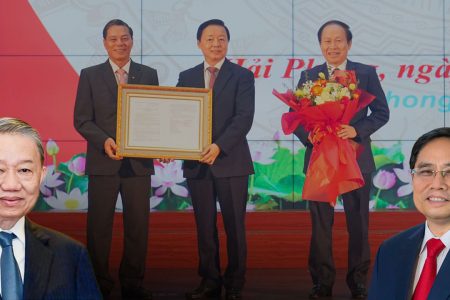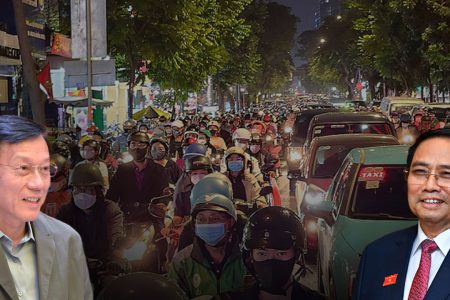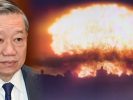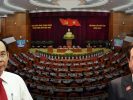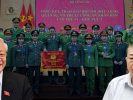
The Communist Party of Vietnam (CPV)’s Central Committee is holding a conference to review some of the country’s key leadership titles.
The 3rd Plenum of the Central Committee in the 13th tenure opened on the morning of July 5 in Hanoi. According to the Government e-newspaper, the introduction of personnel for leadership titles of state agencies for the 2021-2026 term is one of the important tasks considered and decided by this conference.
In his opening speech, General Secretary Nguyen Phu Trong said that human resource work “is a very important job.”
He said at this conference, the Politburo proposed the Central Committee to consider and introduce personnel in the following positions: the state president, the prime minister, the president of the National Assembly, and 24 other leading positions of other state agencies which were approved by the committee in its 2nd plenum taking place at the beginning of 2021. Regarding these candidates which got a high number of votes of confidence, the Central Committee will not conduct a vote recommendation or get feedback.
For the remaining 23 positions that have not been introduced at the 2nd plenum and the titles that are expected to change compared to the previous time, the Politburo will seek the opinion of the Central Committee by voting before officially introducing them to the National Assembly of the 14th tenure to consider electing or ratifying it at the first session.
According to Thanh Nien newspaper, besides personnel, Mr. Trong also said that this conference will discuss and decide on a number of important issues such as socio-economic development plan for the 5-year period 2021 – 2025; consider and promulgate the working regulations of the Central Committee, the Politburo, the Secretariat and the working regulations of the Central Inspection Committee for the 13th term; regulations on the implementation of the Party’s Charter and regulations on inspection, supervision, and discipline of the Party for the 13th term.
Regarding the 5-year socio-economic development plan for 2021-2025, according to Party General Secretary Nguyen Phu Trong, the 13th Congress set out the 10-year socio-economic development strategy for 2021-2030 and orientations and socio-economic targets n the five years from 2021 to 2025. Mr. Trong suggested that the Party Central Committee base on the Resolution of the 13th National Congress and the reports, reports, and references of the central government as well as the actual situation in Vietnam. localities, agencies, and units to research, discuss, and evaluate objectively and comprehensively the current socio-economic situation and analyze and forecast development trends in the coming time.
The Covid-19 epidemic and its impact on society and the economy are also paid special attention. According to Mr. Trong, the country’s socio-economic development continues to develop, achieving many positive results compared to the same period in 2020, but still lower than the set target. Production, business, and people’s lives, especially in epidemic areas and industries and fields directly affected by the epidemic, face many difficulties and challenges.
Trong’s speech assessed that the Covid-19 pandemic will continue to develop in a complicated and difficult to control manner, having negative and lasting impacts on the world and regional economies, including Vietnam. The pandemic will profoundly change the economic order and structure, the model of governance and organization of economic activities, and global social life, forcing many countries to change their economic development orientations and strategies. in the direction of improving internal resources, focusing on developing the domestic market, developing the digital economy, and digital society.
The drastic anti-pandemic work in Vietnam was initially praised for slowing the spread and keeping the death toll low. However, recent outbreaks show that the “anti-epidemic like fighting the enemy” strategy proposed by the central government needs to be adjusted. This is a great challenge to the prestige and leadership of the Communist Party of Vietnam.
Personnel issues and party rules, regulations, and disciplines are particularly emphasized. Mr. Trong said that it is necessary to have specific, strict, and practical regulations to ensure the better promotion of democracy in party activities and activities of the Central Committee, the Politburo and the Secretariate, the Central Committee for Inspection, and at the same time strictly maintain discipline and discipline within the Party; maintain the collective leadership regime, strengthen individual responsibility, especially the leader.
In addition, Mr. Trong emphasized the need to continue to innovate, improve the party’s leadership capacity and effectiveness, and at the same time promote the initiative, creativity, and responsibility of organizations in the political system; renovate and improve the working regime, working style and method of the party’s leading agencies, strengthen the assignment, decentralization, close and appropriate coordination; avoid conflict, overlap or omission.
These are important foundations to contribute to improving the quality and efficiency of the Party’s activities, strengthening its strength, discipline, and discipline, promoting democracy, maintaining unity and unity within the Party, and changing new leadership method of the Party towards the State and society,” said Mr. Trong.
During the last term, personnel work and party discipline were considered a big issue when a series of high-ranking cadres were disciplined or even jailed during Trong’s “burning furnace” campaign.
Thoibao.de (Translated)




